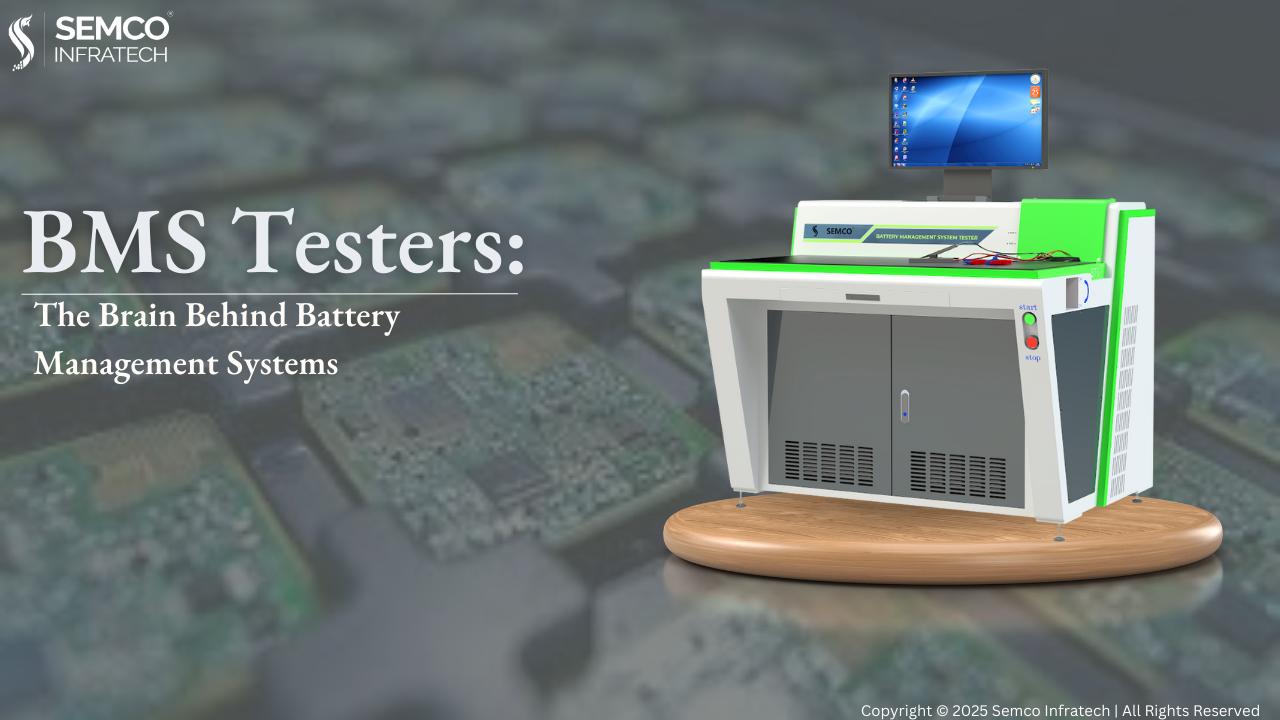As the demand for efficient and sustainable energy solutions grows, Battery Management Systems (BMS) are playing an increasingly critical role. However, without proper testing, even the most advanced BMS can fail. That’s where BMS testers come in—acting as the “brain” behind these systems, ensuring their accuracy, reliability, and safety.
Why is BMS Testing Critical?
BMS testing is essential for optimizing battery performance and extending its lifespan. Proper testing ensures that each cell within a battery pack operates within safe parameters, preventing issues like:
- Overcharging
- Deep Discharging
- Overheating
Testing verifies the system’s ability to monitor and manage the state of charge (SOC) and state of health (SOH) of the battery, maintaining optimal efficiency. Incorrect SOC prediction can lead to overheating, overcharging, and over-discharging. Incorrect SOH predictions may lead to premature battery replacement or waiting until failure, increasing costs. Rigorous BMS testing also identifies potential faults and inefficiencies early, reducing the risk of battery failure and enhancing overall safety and reliability.
Types of BMS Testing
There are four essential types of BMS testing:
- BMS Validation & Testing This involves comprehensive assessments to ensure the BMS meets specified requirements and performs accurately under various conditions. It includes functional testing, communication protocol validation, and performance verification. Functional testing examines the BMS’s ability to manage battery charging and discharging, cell balancing, fault detection, and communication with external systems.
- BMS Lifecycle Testing Evaluating the longevity and durability of the BMS under simulated real-world conditions.
- BMS Environmental Testing Assessing the BMS’s resilience to environmental factors such as temperature variations, humidity, and vibration.
- BMS Functional Safety Testing Validating safety-critical features. Certifying the BMS for functional safety enhances its suitability for applications where reliability is paramount, such as electric vehicles or medical devices.
Performance Testing
Efficient performance lies at the core of a robust BMS. Performance tests determine the BMS’s ability to sustain battery performance under varying conditions. The following aspects are crucial for evaluating and optimizing the performance of a BMS:
- Voltage Monitoring Assessing the BMS’s ability to maintain consistent voltage levels within predefined limits and ensuring stable voltage output under varying load conditions.
- Over-discharge Protection Testing Verify the BMS’s capacity to identify and prevent deep discharging of the battery and protect the battery from potential damage due to prolonged discharge.
- Short Circuit Protection Testing Evaluating the BMS’s response to short circuits and its ability to isolate the affected cells and ensuring that the BMS prevents hazardous conditions arising from short circuit events.
Communication Interface Testing
Seamless communication is vital for coordinating various components within a battery system. The BMS must effectively communicate with external devices and subsystems. Essential communication interface tests include:
- CAN Bus Communication: Validating the functionality of the Controller Area Network (CAN) communication protocol and ensuring reliable data exchange between the BMS and other components in the system.
By incorporating big data platforms and cloud-based technologies, the effectiveness of AI algorithm-based BMS can be significantly increased. Real-time data from EVs, such as voltage, current, and temperature, can assess the performance and precision of AI algorithms. Real-time monitoring is essential for collecting information, which is subsequently preserved in a cloud-based database, for examining the estimated battery health condition and performance over time.





